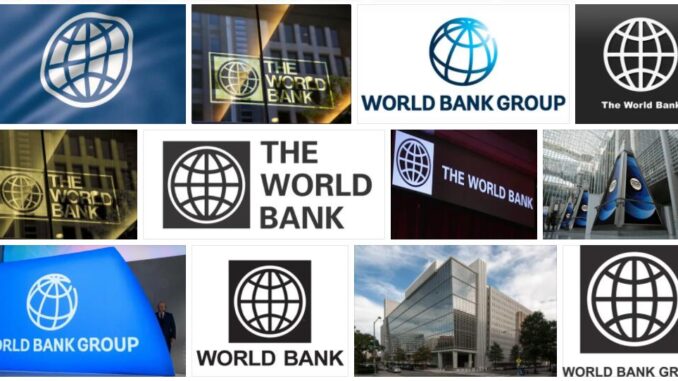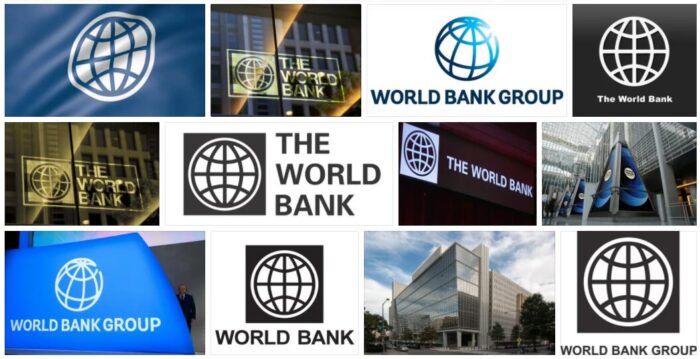
The World Bank is a specialized entity of the United Nations (UN). Its name is often written in an abbreviated form, that is, only with the initials BM and in English it is known as World Bank Group or WBG.
This institution, whose headquarters are in Washington (United States), was created in 1944 and is made up of 185 member countries. Its main objective is to lower poverty rates through low-interest loans and economic support to developing nations.
The World Bank was born as an extension of the International Bank for Reconstruction and Development (IBRD), an initiative planned to help European nations in their reconstruction after World War II.
The beginnings of the WB
It was founded in 1945, after the end of the Second World War, being approved by 38 countries first until reaching the number of 181 member states. The main aim was to help the economy of the European countries that had been devastated by the war, offering them loans that were destined for their reconstruction. The first to receive one was France (250 million dollars), later Chile, Japan and Germany among many others. The beginnings of the WB
The World Bank is maintained thanks to the payment of interest and speculation in the stock market, in addition to the quotas that the States contribute in order to be able to participate in this organization. Those countries that are part of the World Bank have the right to borrow money in the event of a catastrophe, thus paying high tariffs to avoid being completely ruined in such situations is justified. In 1990 the World Bank granted the largest loan ever given to Mexico, a value of 1.26 billion dollars for the country to use to pay its foreign debt.
Due to the great indebtedness that almost all the countries had with the World Bank, the Initiative for the Reduction of the Debt of Highly Indebted Poor Countries was carried out, through which the affected countries were forgiven a part of the debt if they worked with new policies of structural adjustment.
The World Bank Group has offices in more than 100 countries and employs more than 10,000 employees. On the other hand, around 5,000 people collaborate with the organization on a temporary basis or as consultants.
Short for WB by AbbreviationFinder, The World Bank does not have an absolute owner, all member countries are owners, however there are some States that own more shares in this body and this allows them to enjoy greater privileges, these are: United States (16.98% of the World Bank funds come from this country), Japan (owns 6.24% of the shares), Germany (4.82%) and and France and the United Kingdom (4.62% each), it is known that the one that contributes more resources more influence can exercise around the decisions that are made there.
Among the entities that are part of the group are the International Development Association (IDA, 166 member countries), the International Bank for Reconstruction and Development (IBRD, with 185 member countries), the Multilateral Investment Guarantee Agency (known as MIGA, 171 member countries), the International Center for Settlement of Investment Disputes (ICSID, 143 member countries) and the International Finance Corporation (IFC, 179 member countries).
It should be noted that the World Bank has a team of Executive Directors that is made up of 12 stable Executive Directors who hold the position and 12 who serve as alternates but are not authorized to participate in voting. On the other hand, the Executive Board is in charge of electing the President of the organization.
The way the WB operates consists of an annual meeting that takes place between September and October, where the economic actions of the member countries are analyzed, after which the 24 Executive Directors meet where those countries that have greater shares in the WB They are the ones that have the greatest weight in decision-making and establish how each country should operate from that moment on.
There are many positions around the effectiveness or the harmful character that this institution has in the world economy. In a concise way, three positions about this entity can be recognized:
* Those who believe that it is contributing to development and the elimination of poverty in the world since its projects are effective. (very few dare to defend this position).
* Those who believe that the World Bank is fundamentally responsible for structural poverty but that if new measures of social integration were planned, this could be positively modified.
* Those who also claim that it is responsible for poverty in the world and argue that it should disappear to give rise to new mechanisms that project a fairer economic architecture and truly distribute wealth, without defending the private interests of large shareholders as is the case with the World Bank.
